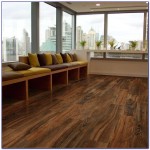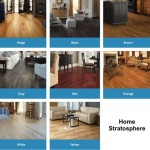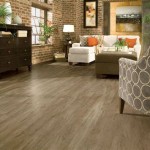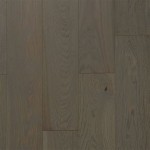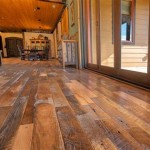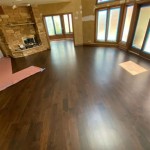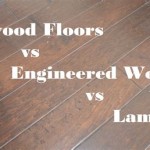1 2 Engineered Hardwood Flooring: The Ultimate Guide
Engineered hardwood flooring is a popular choice for homes and businesses alike. It offers the beauty and warmth of natural hardwood, but with greater durability and stability. If you're considering engineered hardwood flooring for your next project, here's a comprehensive guide to help you make an informed decision.
What is Engineered Hardwood Flooring?
Engineered hardwood flooring is a type of flooring that consists of a top layer of real hardwood veneer bonded to a core of plywood or high-density fiberboard (HDF). This multi-layer construction provides the following advantages:
- Stability: Engineered hardwood is more dimensionally stable than solid hardwood, which means it's less likely to expand and contract due to changes in temperature and humidity.
- Durability: The top layer of hardwood is durable enough to withstand everyday wear and tear, while the core provides added strength and support.
- Moisture resistance: Engineered hardwood is more moisture-resistant than solid hardwood, making it suitable for areas with higher humidity levels, such as kitchens and bathrooms.
Types of Engineered Hardwood Flooring
Engineered hardwood flooring is available in a wide range of species, colors, and finishes. Some of the most popular species include oak, maple, walnut, and cherry. The top layer of hardwood can be stained or finished in a variety of ways to achieve the desired look.
There are also different types of cores used in engineered hardwood flooring. Plywood cores are made from thin layers of wood veneer glued together. HDF cores are made from wood fibers that are compressed and glued together. HDF cores are more moisture-resistant than plywood cores, but they are also more expensive.
Installation and Care
Engineered hardwood flooring can be installed over most existing subfloors, including concrete, wood, and tile. It can be installed as a floating floor, which means it's not attached to the subfloor, or it can be glued down for added stability.
Engineered hardwood flooring is relatively easy to maintain. Regular sweeping and mopping is all that's needed to keep it looking its best. Avoid using harsh chemicals or cleaners, as they can damage the finish.
Benefits of Engineered Hardwood Flooring
Engineered hardwood flooring offers a number of benefits over solid hardwood flooring, including:
- Lower cost: Engineered hardwood is typically less expensive than solid hardwood.
- Easier installation: Engineered hardwood can be installed more quickly and easily than solid hardwood.
- Greater durability: Engineered hardwood is more durable and stable than solid hardwood.
- More moisture-resistant: Engineered hardwood is more moisture-resistant than solid hardwood.
Conclusion
Engineered hardwood flooring is a great choice for homeowners and businesses who want the beauty and warmth of natural hardwood, but with greater durability, stability, and moisture resistance. It's available in a wide range of species, colors, and finishes to match any décor. With proper installation and care, engineered hardwood flooring can last for many years.

Wooden Flooring The Ultimate Guide Types Features Installation

Guide How To Install Engineered Hardwood Floors

How To Install Lock Engineered Hardwood Flooring

Waterproof Hardwood Flooring The 2024 Guide Floorings

The Ultimate Guide To Choosing Your Home Flooring Floor Xpert

3 8 Inch Vs 1 2 Hardwood Floors Reallyfloors America S Est Flooring

How To Buy Unfinished Hardwood Flooring Rw Supply Design

Hardwood Vs Engineered Wood Flooring Which Is Best For You Forbes Home

Bellawood 1 2 In Select Santos Mahogany Engineered Hardwood Flooring 5 13 Wide Ll

3 8 Inch Vs 1 2 Hardwood Floors Reallyfloors America S Est Flooring
See Also

